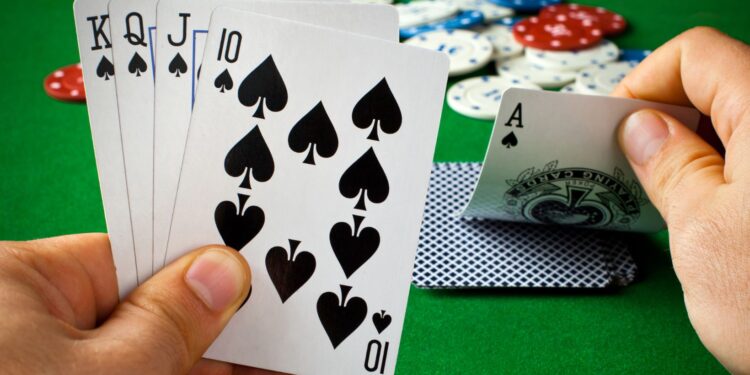Poker is more than just a game of chance; it’s a thrilling blend of strategy, psychology, and skill that has enthralled gamers for generations. Whether you’re a novice looking to learn the ropes or an experienced player aiming to refine your tactics, conquering poker can be a rewarding journey. This guide will provide you with essential insights and strategies to elevate your poker game to new heights.
Understanding the Basics of Poker
Before diving into advanced strategies, it’s crucial to understand the fundamental rules and structure of poker. At its core, poker is a card game where players bet on the value of their hands. The goal is to either have the best hand at showdown or to convince your opponents to fold, thereby winning the pot. The most popular variant is Texas Hold’em, but there are many other forms like Omaha, Seven-Card Stud, and more. Each variant has its own set of rules and nuances, but the basic principles remain the same.
In poker, the hand rankings are essential to understand. From the high card to the royal flush, knowing the hierarchy of hands will help you make informed decisions during play. Additionally, understanding the betting rounds—pre-flop, flop, turn, and river—is vital. Each round offers an opportunity to bet, check, raise, or fold, and perfecting these actions can significantly impact your success. Familiarizing yourself with poker terminology, such as blinds, antes, and buttons, will also enhance your gameplay experience.
Key Strategies to Improve Your Poker Game
To truly excel at poker, you need to develop a solid strategy. One of the most effective ways to improve is by studying the game and learning from experienced players. Platforms like GGPoker offer a wealth of resources, including tutorials, strategy articles, and live streams of professional games. Observing how the pros play can provide valuable insights into advanced tactics and decision-making processes.
Another crucial aspect of poker strategy is understanding the importance of position. Your position at the table can significantly influence your strategy and the range of hands you play. Being in a late position allows you to see how your opponents act before making your decision, giving you a strategic advantage. Additionally, conquering the art of bluffing and knowing when to fold are essential skills. Bluffing can be a powerful tool, but it must be used judiciously. Knowing when to fold, even with a seemingly strong hand, can save you from significant losses.
Common Mistakes to Avoid in Poker
One of the most common mistakes in poker is playing too many hands. Novice players often fall into the trap of thinking that they need to be involved in every hand to win. However, playing too many hands can lead to unnecessary losses. It’s essential to be selective with the hands you play and to understand the concept of starting hand selection. Playing fewer hands but with better quality can improve your chances of winning.
Another frequent error is failing to manage your bankroll effectively. Poker is a game of ups and downs, and managing your bankroll is crucial to long-term success. Setting limits on how much you’re willing to lose in a session and sticking to those limits can prevent you from going broke. Additionally, avoid chasing losses by trying to win back the money you’ve lost. This can lead to poor decision-making and further losses.
A third common mistake is neglecting the psychological aspect of poker. Understanding your opponents’ tendencies and being aware of your own emotional state can significantly impact your performance. Tilt, a state of emotional frustration, can lead to reckless decisions and substantial losses. Learning to recognize and manage tilt is essential for maintaining a clear and focused mind during play.
Tips for Staying Focused and Engaged During Play
Maintaining focus and engagement during a poker session is crucial for making optimal decisions. One effective way to stay focused is by taking regular breaks. Long sessions can lead to mental fatigue, which can negatively impact your decision-making abilities. Short breaks can help you recharge and maintain a high level of concentration.
Another tip is to create a distraction-free environment. Playing poker requires intense focus, and minimizing distractions can help you stay engaged. This means turning off notifications on your devices, finding a quiet space to play, and avoiding multitasking. Additionally, staying physically active and maintaining a healthy lifestyle can improve your mental stamina and overall performance at the poker table.
Conclusion
Mastering poker is a journey that requires dedication, practice, and a willingness to learn from both successes and failures. By understanding the basics, developing key strategies, avoiding common mistakes, and staying focused during play, you can significantly improve your poker game. Remember, poker is not just about the cards you’re dealt but how you play them. Embrace the challenge, enjoy the process, and keep striving to become the best player you can be.
In the world of poker, continuous learning and adaptation are key. The game is ever-evolving, and staying ahead of the curve requires a commitment to honing your skills and staying informed about new strategies and trends. Whether you’re playing for fun or aiming to compete at a high level, the principles outlined in this guide will serve as a solid foundation for your poker journey. So, shuffle up and deal, and may the cards be ever in your favor!






















